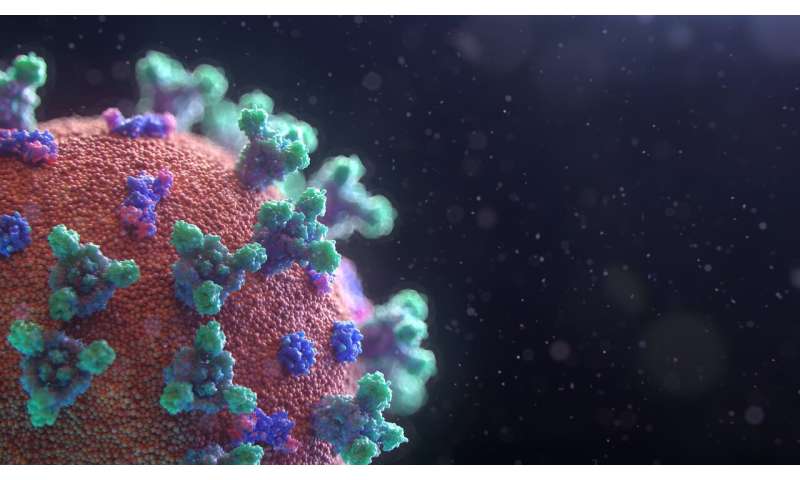Study highlights neurological impact of COVID-19 on children

A small number of previously healthy children infected with COVID-19 can have severe neurological complications, according to research by University of Manchester scientists.
Thirty-eight children from eight countries, in a study published in Lancet Child and Adolescent Health, were found to be suffering from brain and/or spinal cord abnormalities.
The children, who all had MRI scans, presented with symptoms including fever, reduced consciousness, problems moving their arms and legs and cognitive dysfunction.
Most of the children (32) had either recovered (26) or were on their way to recovery (6). Eight did not display the respiratory symptoms commonly seen in patients with the virus. Four died from coinfections such as TB and MRSA after COVID-19 had made them more susceptible. Two of the children had paralysis after the virus had affected their spinal cord.
Funded by the American Society of Pediatric Neuroradiology, it is the largest study of children who’s central nervous system has been either directly or indirectly affected by COVID-19.
Though the study is not able to identify the incidence of neurological problems in children with the virus, the team expect the number to be low. Professor Stavros Stivaros, pediatric neuroradiologist and director of imaging at The university of Manchester was joint senior author on the study. He said, “It’s clear from the number of children we have seen with COVID-19, that neurological complications are rare. But it is importance to recognize that COVID-19 could be a possible diagnosis, even if these children are not displaying the virus’s classic respiratory symptoms. So we hope our study will alert hospital doctors and A & E staff looking after children to the fact COVID-19 should be considered as one of the factors that can cause that brain and spinal cord dysfunction. We have long known that different viruses can impact on the brain and spine, but until this study, we couldn’t really say for sure that COVID-19, though rare, could also have this effect.”
Of the 38 children with COVID-19 scanned, a group of 12 children presented with respiratory problems caused by the virus with four of these children dying as a result of co-infections. One remained on a ventilator as a result of spinal injury six months after their presentation.
In a second group, eight children presented with neurological problems but displayed none of the classic symptoms of COVID-19 such as difficulty breathing or loss of taste or smell. Sadly one of these children remains on inpatient on a ventilator also six months after presentation.
In a third group, 11 children developed a developed a delayed inflammatory response to COVID, known as multi-system inflammatory syndrome. And in a final fourth group, seven children had neurological symptoms and abnormal brain and spine imaging but could not be categorized into the other three groups.
Professor Stivaros said, “It’s important to stress that most children with COVID related neurological illness will get better, but nevertheless it can rarely occur in previously healthy children. A small number of these previously healthy children will die from either directly from COVID-19 or from of their increased sensitivity to other infections and some can get neurological complications from a delayed response to their COVID-19 infection. We also suspect that children who were neurologically impaired through COVID-19 earlier in the pandemic might not have been identified. That could be explained by an absence of available PCR testing or because the atypical or delayed symptoms shown by children were not immediately identified as being COVID-19 related.”
Source: Read Full Article


